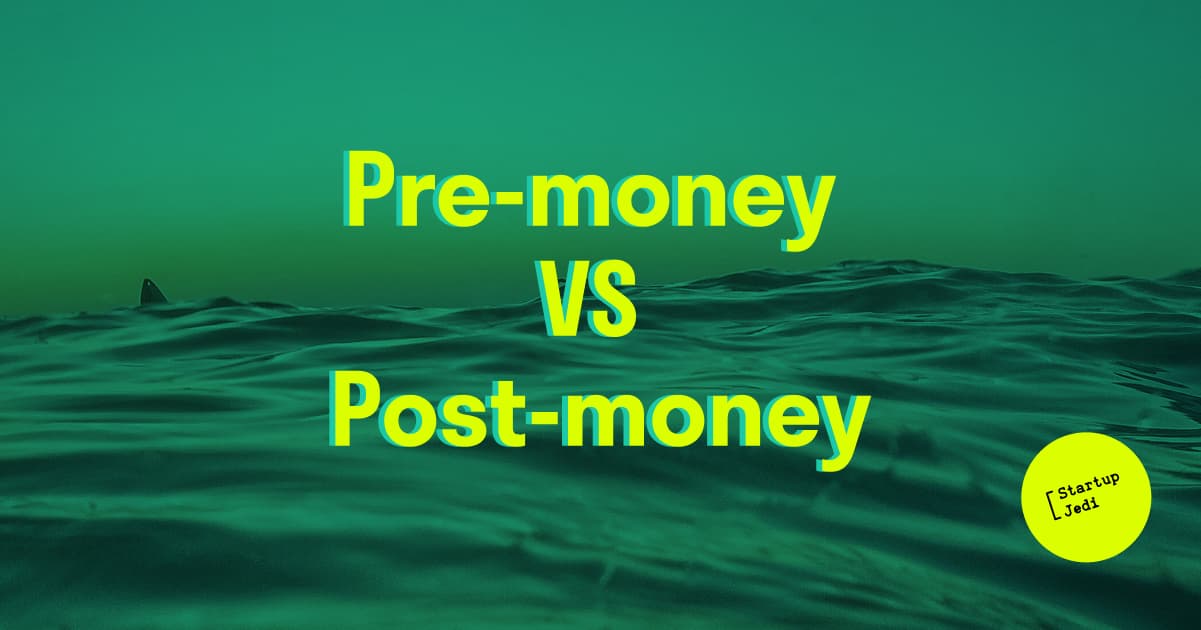
Startup Jedi
We talk to startups and investors, you get the value.
In the life of every goal-oriented founder, there is a thrilling and tempting moment of attracting the first money. Thrilling because, usually, this is an immersion into the brave new world of term-sheets, captables and evaluations. Today we are going to talk about the last counted item. In this article will be a lot of terms and notions, so be patient.

Startup Jedi
We talk to startups and investors, you get the value.
Company evaluation it is a company value as an asset complex, which is able to bring profits to the auctioneers and owners. Raising investment rounds, there are possible two types of evaluation: pre-money and post-money. Founders-beginners often get confused with these notions, so let’s slice and dice.
Roughly speaking, pre-money is a company evaluation before the investment round without taking into account ESOP(Employee Stock Ownership Plan) mechanisms, pro-rata rights (investment rights of early investors) and loan conversion. Post-money — is done right after the investment round (taking into account all mentioned in the previous sentence).
Seems to be simple, but you have to understand this as vividly as possible, so let’s make it ABC. The very basic example — you have an investor, offering you to invest 200 000$ in a company that is valued in 800 000$. Depending on whether he talks about pre-money or post-money, in the framework of an investment round, he would get:
pre-money: 200/(800+200)=20%
post-money: 200/800=25%
A substantial difference, isn’t it? It is a simple example, which excludes potential conversions and pro-rata rights, which can make the difference even more significantly.
Evaluation of a startup on early stages it is more about negotiations and finding common ground, rather than about specific numbers which are solidly proven. Of course, you can tie the evaluation to the income, EBITDA or some particular metrics, but consequently, the process of approving the evaluation still comes down to trading on financial forecasts, estimated exit multiples, etc. So in which paradigm is it better to negotiate an evaluation?
Undoubtedly, post-money is much easier for investors. This decreases their labour efforts as the evaluation is fixed and does not depend on variables like pro-rata rights, ESOP mechanism and loan conversions. Everything is already included.
If negotiations are initially held in the post-money, founders and investor agree about funds’ stack before the dive into complicated and sometimes terrifying Maths of captable (table of capitalisation), which is convenient to the investor.
However, such a method is often unprofitable to founders, and that’s why experienced founders are trying to start the initial negotiations in the pre-money. The reason is quite simple — pre-money evaluation is usually significantly lower than post-money evaluation. What is more, investors experience an anchoring effect because of this. It seems that the evaluation is not empyreal, but in a matter of fact, after all the manipulations with captable, post-money doesn’t look that attractive, but “If I’ve already started” trigger is in action. Even though, when you are talking about the round in 10 million dollars, and pre-money is 30 million dollars, or post-money is 40 million dollars, the first digits look more attractively. However, it is a psychological trick, similar to the old retail joke “Buy 2 packs at a price of 3 and get the third one as a gift.”
...
Let’s solidify:
Pre-money is an evaluation of a company before the investment round and all of the captable manipulations;
Post-money is a company evaluation right after the investment round (including investor’s money)
It is more comfortable for the investor to agree on post-money since less time is spent on the captable nuances analysis;
Experienced founders are trying to agree on pre-money, since the anchoring effect is possible to happen.
Subscribe to my Telegram channel about startups and venture invesments Born Global.
Facebook: facebook.com/StartupJedi/
Telegram: t.me/Startup_Jedi
Twitter: twitter.com/startup_jedi
Comments